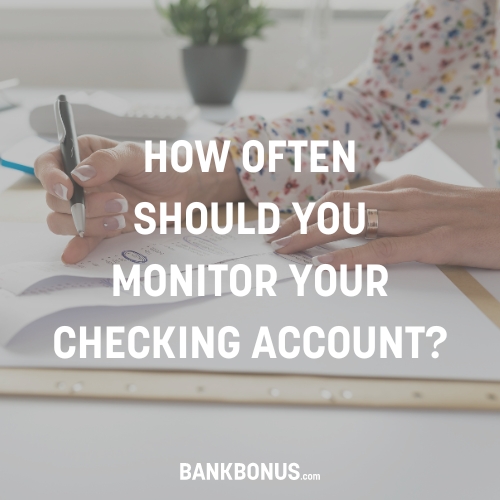A business checking account can prove to be a valuable tool in managing your business finances.
While you can certainly visit the nearest bank to open an account, the truth is that might not be the best fit for your business.
There are several things to consider when opening a business checking account, and doing so can save you many headaches down the line.
We have laid out the entire process of opening a business checking account in 5 easy steps. In each step, we also highlight what you might need and what you should look out for when choosing a bank for your business.
Why Open a Business Checking Account?
It can be quite challenging to do business without having a checking account since they allow for a high volume of transactions, bill payments, and more.
It is also essential to keep your personal finances, and business finances separate – even if your business is a small freelancing practice. Keeping track of your business expenses can be a huge challenge if you’re using your personal accounts.
Not only will opening a business checking account make things smoother when it comes to managing cash flow, but you’ll also have an easier time when it comes to filing for taxes.
Before choosing a bank for your small business, it’s crucial to know your business requirements.
Have your business plan handy, along with any financial projections. If you have an accountant, it might be a good idea to ask for their input. This can help you make sure that you have all of your bases covered by addressing your business needs – today and in the future.
How Do I Open A Business Bank Account?
Here’s how to open a business checking account in 5 easy steps:
- Select a bank
- Choose the right account
- Look for a bonus offer
- Gather documents
- Make your initial deposit
Step 1: Choose the right kind of bank for your business
Before anything else, you need to decide which kind of bank you would like to open your business checking account with. Here you have two main options – either a traditional bank or an online bank.
Both have pros and cons, which we will discuss in a bit. You might also want to consider opening your account with a credit union. This, too, has its pros and cons. Understanding what each one of these is good at and not so good at can help you make the right choice.
Traditional banks
Traditional banks are those banks that have brick-and-mortar branches. They offer many different financial services, including business checking accounts as well as business savings accounts.
Doing business banking with a traditional bank will give you access to other financial services such as loans and credit lines. It also means that you can visit a branch to handle any required business.
Online Banks
Online banks operate 100% online, with no branches to visit. In return, they tend to offer lower fees and higher interest rates. Online banks also tend to have fewer financial products and services when compared to traditional banks.
On the upside, their mobile and online banking tend to be more feature-rich than what traditional banks offer.
Credit Unions
Credit Unions sit somewhere between traditional and online banks. While they have branches, they are not as widespread as traditional banks. They tend to have lower fees and higher interest rates since they are not-for-profit organizations.
Consider the Pros & Cons
There are many other things that you should consider when choosing a bank or credit union. There is no right or wrong answer here since different businesses have different needs and requirements. The important thing is to understand what you need to help your business succeed and then find the best fit for your requirements.
Here are some other things to take into consideration. The important thing to understand here is that it is highly unlikely that you will find the perfect financial institution. Each bank and credit union has its pros and cons – from how they charge fees to the services they offer.
- Fees – Different banks have different fee schedules, charging for some things but not others, such as overdraft fees and transaction fees. Find out which services are essential or important to you and which bank offers the best value for your money.
- Accessibility – Regardless of which type of financial institution you go for, accessibility remains of vital importance. Check the bank’s opening hours (including telephone support) and ATM network access and branches if you decide to go with a traditional bank.
- Services – If you need certain services, such as a merchant services account, make sure that the financial institution you’re considering offers these services. Think also about things such as cash deposits, which can be very difficult with an online-only bank.
- Online and mobile – Running a business can be very time-consuming, which makes online and mobile banking something of a lifesaver. The more things you can do online, such as paying bills using bill pay, the less time you’ll waste visiting branches or calling the bank.
- Integrations – Many banks offer seamless integration into bookkeeping software, saving time and money from manually carrying out all bookkeeping activities or hiring specialized people to do the integrations for you.
- Limits – Some banks place limits on free activities, such as a limited number of free transactions. Look for accounts that offer generous limits on your most important activities.
- Relationship – If you have an existing relationship with a bank, such as your personal bank, you could potentially get a better deal faster. This is especially true if you have always made payments on time.
Step 2: Choose the right type of business bank account
Most banks (both traditional and online) and credit unions offer several types of business checking accounts. These tend to be tiered, suiting different requirements and budgets.
Lower-tier accounts tend to have lower monthly fees and fewer features, while the higher-tier accounts have higher fees and more features. In most cases, the bank will waive the fee if you meet certain requirements.
These requirements will vary from one bank to the next and can include monthly purchases or keeping a minimum account balance (sometimes also called minimum daily balance).
Most banks will include an account comparison chart on their website, allowing you to quickly view each account’s features and how much it costs. Here, you should also see the requirements you’ll need to meet to have the monthly checking account fee waived.
One other thing that you might want to consider is insurance. Most banks ensure their accounts through the FDIC, while credit unions do this through the NCUA. In most cases, accounts are insured for up to $250,000.
This means that should something happen to the bank, say it goes bankrupt or is unable to give you back your money, you are insured up to the $250,000 limit.
Most FinTech online banks work through a traditional bank to insure their accounts. This bank is the one to check to avoid unnecessary risk and exposure. You should be able to find the 'parent' bank easily on the FinTech's website.
Step 3: Look for bonus sign-up offers
Many banks offer sign-up promotions to customers opening a new business checking account. These promotions can see you get anything from free cash to better terms, higher APY rates, or refunds such as cash-backs.
This can help you inject some extra cash into your business, which can be particularly helpful for business owners who are just starting.
Obviously, there is no such thing as a free lunch. Most sign-up offers and promotions have several requirements that need to be met to be eligible for the bonus.
While these requirements vary from one offer to the next, generally speaking, you can expect business accounts to require you to make a minimum transfer and keep it in the account for a period of time. This means that you will need to have enough cash on the side to park it in your new business checking account for a while.
| Bank | Bonus | Expires | Requirements | |
|---|---|---|---|---|
| up to $500 | July 17, 2025 |
|
Learn More | |
| up to $900 | June 30, 2025 |
|
Learn More | |
| up to $400 | September 30, 2025 |
|
Learn More |
Step 4: Collect the required documents
When applying for a business checking account, you will need to present some documents such as personal identification documents or at the very least refer to them. By understanding which documents you will need during the application process, you can ensure a smoother and faster process.
What documents are required to open a business bank account?
Each bank will have its own process and requirements for opening a business checking account. This means that it is near impossible to cover all documents that all banks might require.
To make sure you have all of the information, you should refer to your bank of choice and see what documents they require. Most banks require all or a combination of the following documents:
| If your business is a… | Required documents |
|---|---|
| Sole Proprietorship |
|
| Partnership |
|
| S Corporation |
|
| LLC (Limited Liability Company) |
|
| C Corporation |
|
Step 5: Make your first deposit
Some banks require a minimum opening deposit, while others do not. If there is a minimum opening deposit requirement, the information will be made available on the bank’s website. Typically this amount ranges from $5 – $500.
In most cases, you should be able to do a simple transfer. If your account includes mobile banking, you might also be able to transfer funds using mobile check deposits.
Through this feature, you can take a picture of a check using your smartphone and then send it to the bank.
Which bank is best to open a business account?
Each business has different requirements depending on the business, its financial situation, and the market in which it operates. Because different banks offer different things, the best bank for your small business will be the one that best matches your requirements.
This is why it’s so important to do your research before choosing a bank or account. By understanding what is available, you can make a wiser choice and find the bank and account that best fits your situation.
Your relationship with your bank can prove to be a great asset down the line, but bank relationships, like other relationships, take time and effort to build and maintain.
It’s important to also think of the future – not just about your business needs now. As an example, consider whether you will need a business loan such as an SBA loan and if the bank of your choice can provide you with such a loan.
To help you get started, here are some of the best banks that offer business checking accounts, as well as some of the best free business checking accounts.
1. Chase
Chase is known for its Business Complete Checking® account. Like Bank of America, there is a monthly maintenance fee, but this can be waived in several different ways.
The bank has an ATM network of over 15,000 ATMS and has more than 4,700 branches across the country.
The account features unlimited electronic deposits and the ability to accept card payments.
You can also upgrade to a Chase Performance Business Checking or a Chase Platinum Business Checking account for even more features and benefits.
Learn More:
- Read our full Chase Bank review
- See all current Chase Bank promotions
2. Bluevine
Bluevine is an online bank specializing in free business checking accounts and loans, which is a great fit for new businesses.
It offers a completely free checking account with no management fees and competitive APY. Bluevine is a solid choice for small businesses, freelancers, side hustlers, and new entrepreneurs, with unlimited transactions, mobile deposits, and the ability to send payments to 26 countries in eight currencies.
While it doesn’t have any physical locations, Bluevine offers a number of useful technology integrations and provides free withdrawals at over 38,000 ATMs.
Learn More:
- Read our full Bluevine review
- See all current Bluevine promotions
3. Bank of America
Bank of America offers two different business checking accounts – Fundamentals and Advantage. As the name suggests, Fundamentals is the more basic of the two, with Advantage being the high-tier account.
A monthly fee starts at $16 per month, but this can be waived by meeting one of the five available criteria each month.
Domestic transfers cost $15 each, but they are free if you opt for the Advantage account, which also offers QuickBooks integration.
Learn More:
- Read our full Bank of America review
- See all current Bank of America promotions
4. Navy Federal Credit Union
Navy Federal offers many business checking accounts. The most basic has no monthly service fee and an APY of 0.01%. The APY rate can go up to 0.45%, but you’ll need to meet some requirements to take advantage of this.
Account features include the ability to have two signers and include many non-electronic transactions for free.
Learn More:
- Read our full Navy Federal Credit Union review
FAQs
Can I open a personal checking account for a small business?
You can technically open a personal checking account for a small business, but this doesn’t mean you should. There are many benefits as to why you should open a business checking account for your business. As discussed earlier, having a separate account for your small business means that you will have an easier time managing your cash flow. You will also have a much easier time when it comes to filing taxes as you will not have to separate personal expenses and income from business ones.
How much money do you need to open a business checking account?
Generally speaking, business checking accounts are free to open. That’s not to say that they won’t require a minimum opening deposit, which we covered earlier. There also may be a minimum threshold for avoiding any monthly maintenance fees. Both pieces of information should be readily available from the bank’s website.
Which bank account is best for your business?
Finding the right business bank account for you can help your business prosper. Not only do banks offer many essential services, but they can also potentially open new windows of opportunity for you
This is why it might be a good idea to refer to your business plan. This way, you will find a bank and a business checking account that can support your growth.
Finding ways to avoid fees is also something important to keep in mind. While some fees cannot be avoided, some can.
From meeting specific minimum balance requirements to finding an account that offers no fees, saving this money can help you increase your business’s capital.
From startups to nonprofit organizations, bank accounts can be an asset or a liability. Taking the time to choose the right one can help you make sure it’s the former and not the latter.





Read 2 comments
Read Comments